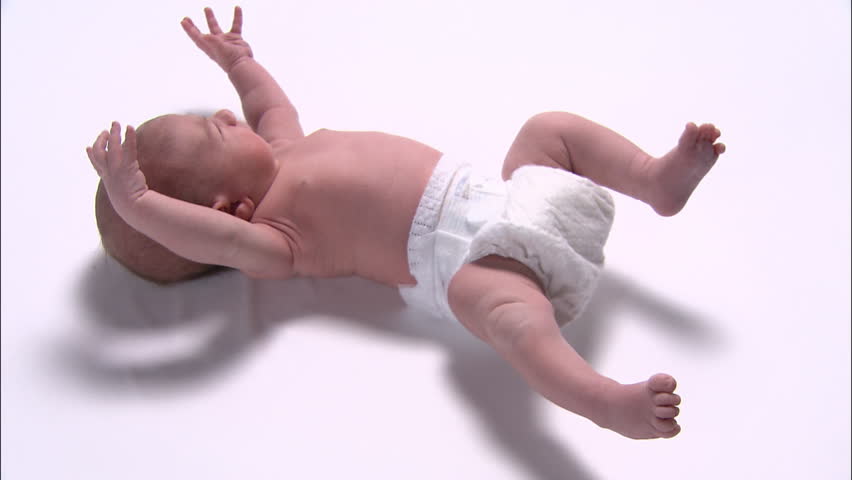


When babies are first born, they spend much of their time sleeping. After a few months, you may be surprised by how much babies move around before they even start to crawl. Some babies tend to constantly move hands and feet. It is adorable but also leaves many parents wondering if it is normal and if there is a problem.

This is totally normal and shouldn’t be a cause for concern. There are three different aspects for explaining this. If you are concerned, you can also call your doctor to make sure there is nothing else going on.
1. Excitement
If babies are looking at something, you may see them move their arms and hands nearly constantly. When they are waving their arms, it is often because they are excited about something interesting they see. This can happen when you talk to your baby, or show toys he/she can grasp. Until about two or three months, this movement is not purposeful or controlled. Once the baby is older, waving arms will become more purposeful.
2. Increasing Motor Skills
Movement is how babies will increase the strength and muscle growth. You may see their hands go in their mouth, open and close into fists, or wave toys wildly. These movements can seem restless, but they are a natural and healthy step in your child’s growth and physical development. This is a common cause of baby constantly moving hands.
3. Startle Reflex
The Moro reflex, also called startle reflex, is found in infants. This is what causes the sharp arm and hand movements. When babies hear a loud noise, they will instinctively extend the limbs out and then slowly bring them back to the body. The startle reflex can be stimulated at the sound of their own crying. Sudden movements when they are sleeping, such as moving their car seat, can also cause this reflex.
It is quite common for babies constantly moving hands. The stories from other mothers may help rest your mind.
"When my daughter was an infant, she constantly moved her hands and feet. It looked like she was a little conductor in an orchestra. My pediatrician told me that she was doing this as a means of self-soothing. It was more common when she was excited or stimulated, such as during meal time or when she got a new toy. I worried a lot about it at first, but now she is 15 months old and has slowed down the sporadic movements."
"Both my baby boy and girl (now two and a half, and six respectively) did this a ton while they were infants. None of the doctors or nurses we’ve worked with has ever been concerned about baby constantly moving hands. My daughter would twirl her hands around and open her mouth when she was very excited. My son also did much of this until he was just over a year old. Both are happy and healthy, so I wouldn’t worry about it."
Because many parents know that a symptom of autism is waving and flapping the hands around, they get worried about this action. It can be hard to tell if your baby has autism based on this action because it is so common in all babies. Most children who are on the spectrum won’t be diagnosed until four years old or so.
It is important to remember that children with autism will have repetitive actions that are called self-stimulatory behaviors. These behaviors can include rocking, or repeatedly moving objects such as spinning a wheel on a toy. Other examples can be blinking, staring at lights, hand flapping, wriggling fingers in front of their face, tapping surfaces, tensing face and arm muscles, rubbing things, spinning, and licking or smelling people and things.
Though baby constantly moving hands alone is not worrisome, if you see the above signs, or have other worries about your child’s development, it is best to bring it up with your pediatrician. The following are the signs of autism according to the babies' age.
By Six Months
There are a few things that can be a worry if you don’t see them happening by six or seven months. Some of these include:
By 12-14 Months
There are also several benchmarks you should see your child passing by 12-14 months. The following signs may be a cause of concern.
By 24 Months of Age
You should also pay attention to what your child is able to do by 24 months. If your baby is unable to do some of these developmental benchmarks, it is time to meet with your pediatrician.